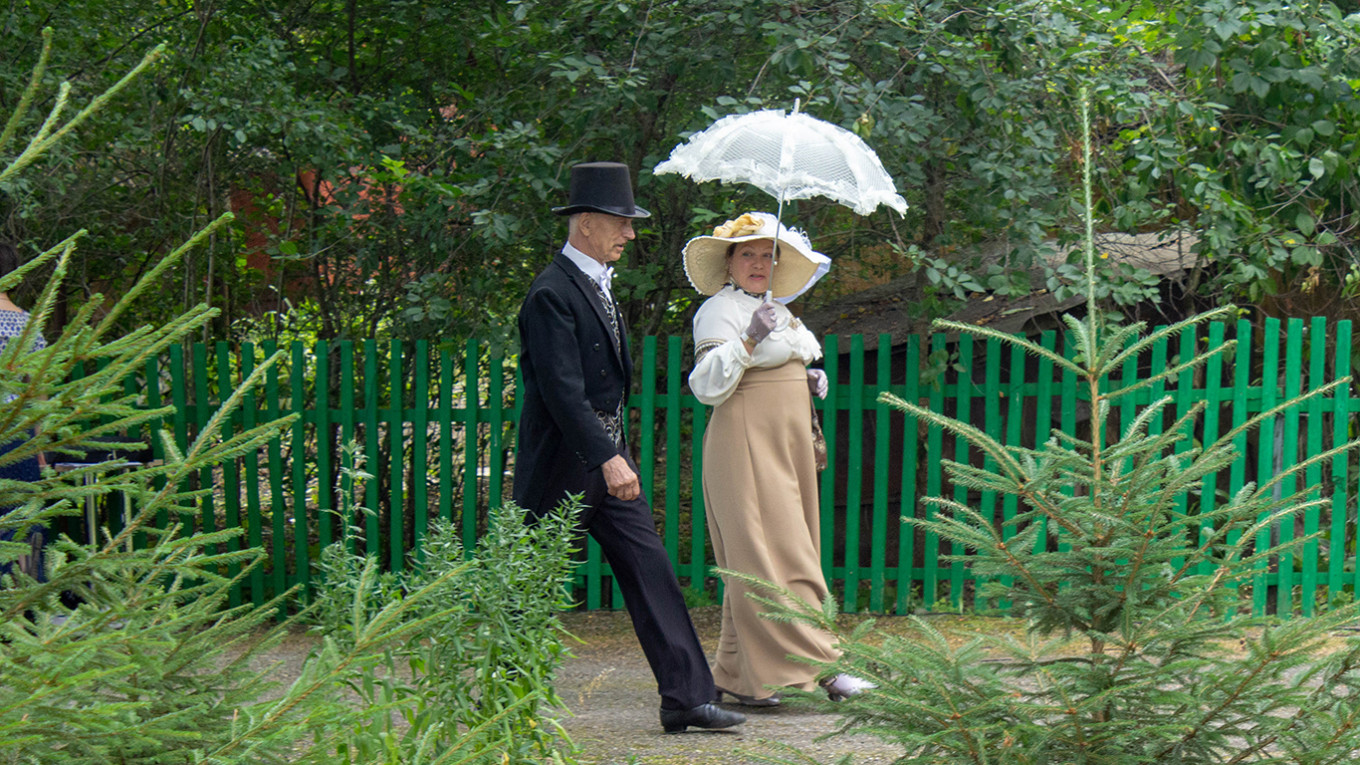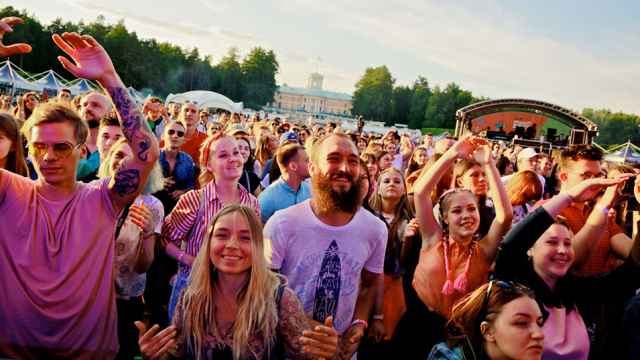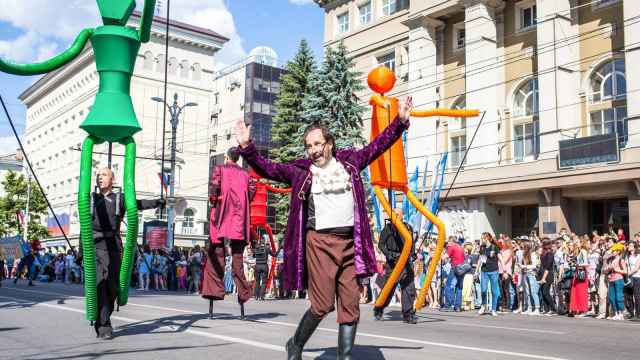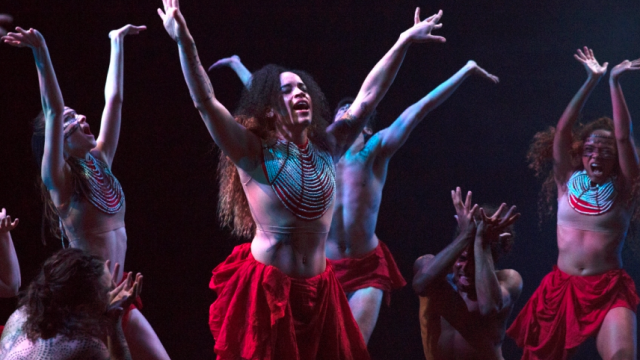Women wearing floor-length dresses in muted colors, men in frock coats and tailcoats, the sounds of romantic melodies, tea aroma from a wood-burning samovar and tourists with cameras… This was the scene at the Tainy Usadby (Secrets of the Manor) immersive festival, organized by the Crystal Elephant Cultural Development Club. It has been held since 2018 in different Russian estates. With support of the Presidential Grants Fund, this year it was held at the estate of Peter Semyonov-Tyan-Shansky in the Lipetsk region.
For one day, visitors to the festival traveled back in time to the turn of the 20th century to spend a weekend like Russian nobles. “Many historians consider that the country estate is a specifically Russian phenomenon. A feature of the Russian estate is that the house, garden and outbuildings reflected the inner world of the owner. The festival allows us to illustrate history through the example of a single estate,” Yaroslav Yaroslavin, one of the organizers of the festival, told The Moscow Times.
Pyotr Semyonov-Tyan-Shansky was a famous Russian geographer and traveler, who explored the Tian-Shan Mountains, located in Central Asia near the border between China and present-day Kyrgyzstan. He was born in the village of Ryazanka, Lipetsk region.
Semyonov-Tyan-Shansky had a brother and two sisters, and their parents paid much attention to the games of their children. Today's children put away their earbuds and cellphones to learn how to play with a hoop, which is thrown into the air with a special stick and then caught on the same stick. They also play badminton, gorodki (a folk game like a cross between bowling and horseshoes) and croquet.
Some visitors surprise themselves. Andrei Zaitsev attended the festival last year. “As someone who had never had any interest in any gambling and competitive games, I was intrigued by croquet. I got hooked,” he told The Moscow Times.
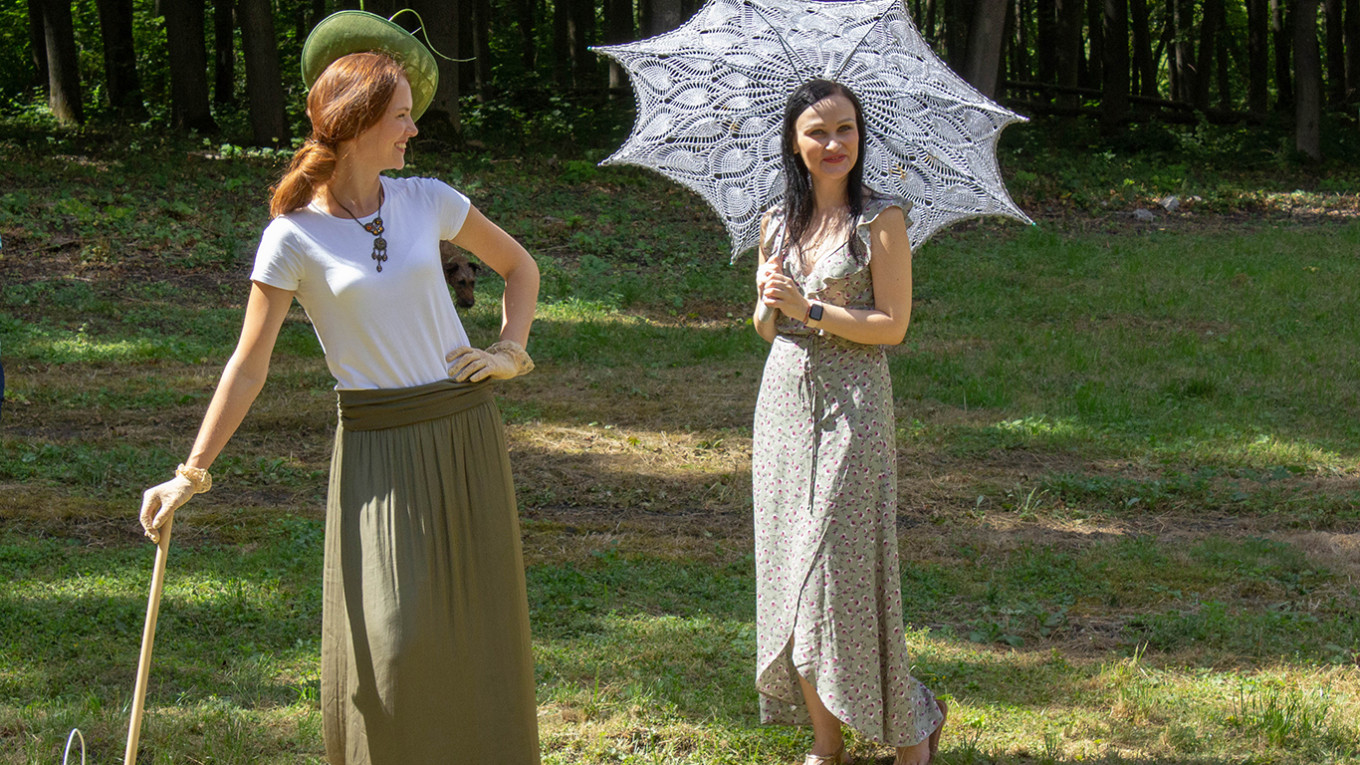
This year he came to the Tainy Usadby festival with his wife, Olga, who said, “I'm a coffee lover, but the local tea was wonderful. Especially with jam. We were told that it was prepared according to the recipe of the Semyonov-Tyan-Shansky family.”
At many, if not most estates, the owners took care of the peasants of the surrounding villages, building schools, hospitals, almshouses, and vocational workshops. For that reason, the festival program included a recreation of a provincial school. But the visiting schoolchildren didn’t learn the alphabet or arithmetic like children of peasants. A teacher taught them how to design an herbarium and create postcards with dried plants.
In workshops, teachers taught ballroom dancing, portrait and landscape drawing, table setting, needlework, and other skills. Some skills were immediately useful. A participant could make a hat at the master class in the afternoon and then wear it during the historical fashion show in the evening.
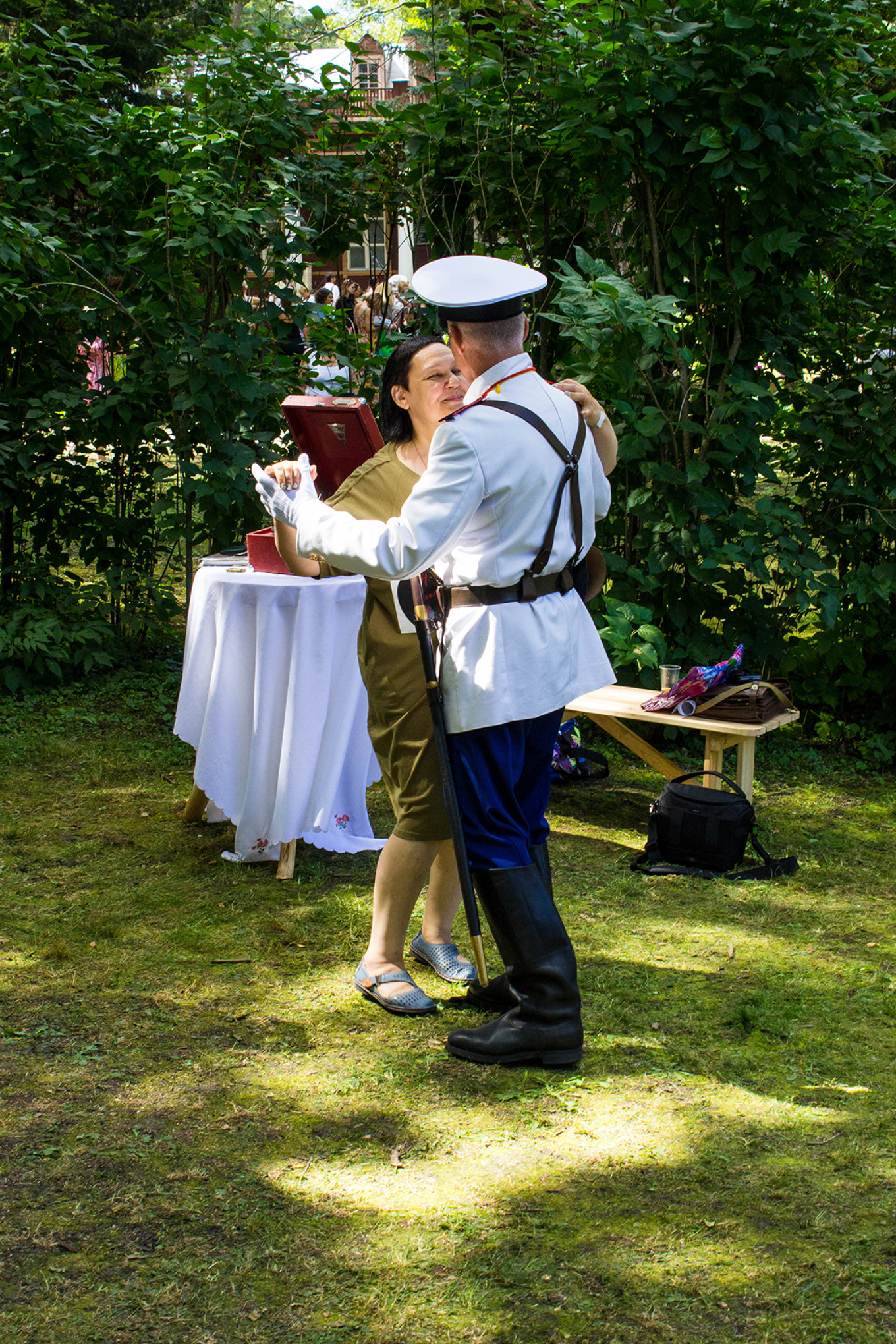
Although there was no dress code, many guests came in stylized or historical costumes from the end of the 19th century or the beginning of the 20th century. “My dress was made specially for the first festival in 2018, and since then it has been an integral part of my image,” said historian Tatiana Sidoruk. She takes part in almost every festival.
To complete one’s image, women could visit the beauty parlor to have their hair dressed. Usually, the hair was lifted from the forehead to the back of the head, then fell back to the shoulders in a shock of long curls. A woman had to be perfectly groomed 24 hours a day, and this took a lot of time and effort — something the women visitors had a chance to experience themselves.
At the end of the evening, a competition of historical costumes was held. And then contestants and visitors who mastered ballroom dancing during the festival lessons spun around the estate hall in waltzes.
For more information about the event, see the festival site.
A Message from The Moscow Times:
Dear readers,
We are facing unprecedented challenges. Russia's Prosecutor General's Office has designated The Moscow Times as an "undesirable" organization, criminalizing our work and putting our staff at risk of prosecution. This follows our earlier unjust labeling as a "foreign agent."
These actions are direct attempts to silence independent journalism in Russia. The authorities claim our work "discredits the decisions of the Russian leadership." We see things differently: we strive to provide accurate, unbiased reporting on Russia.
We, the journalists of The Moscow Times, refuse to be silenced. But to continue our work, we need your help.
Your support, no matter how small, makes a world of difference. If you can, please support us monthly starting from just $2. It's quick to set up, and every contribution makes a significant impact.
By supporting The Moscow Times, you're defending open, independent journalism in the face of repression. Thank you for standing with us.
Remind me later.


